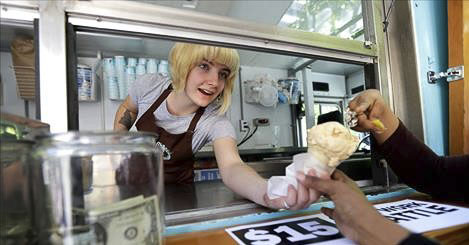
Mark Harmsworth of the Washington Policy Center warns that more increases will bring more misery for workers
Mark Harmsworth
Washington Policy Center
Several cities and counties in Washington have caught the minimum wage increase fever by proposing increases of $20.29 in King County to as high as $24 an hour in Olympia. There was even talk about a $41 an hour wage for a single parent with a child at home which roughly equates to $82,000 a year.

Sounds great until the reality of paying for the increases kicks in.
King 5 reports one restaurant owner said going over $20 per hour will likely force him to raise prices.
The false assumption in all minimum wage increase proposals is the employee will benefit long term from higher income.
Minimum wage increases are always hard for both employee and employer. The employee thinks they are getting more money in the short term, but the longer-term effect is less hours and in some cases, a loss of a job.
An employer’s income from products and services is finite and the only options when government mandates a wage increase are to reduce costs (employees) or raise prices. The profit margin on food is 3-4% in many restaurants, including fast food. When a state or municipal government forces an increase in the minimum wage, the restaurant has to either raise prices or reduce costs (primarily labor) to maintain a profitable business. Less jobs, less hours and higher prices.
A minimum wage is not supposed to be a living wage.
A visceral demonstration of the negative effects of raising minimum wage happened recently in California where a government mandated an increase to $20 for fast food workers. Overnight the price of the food increased to cover the additional wage cost. One viral picture on X, showed In-N-Out Burger increasing prices across the board. Rubio’s Coastal Grill in California closed 48 restaurants as a result of the $20 minimum wage increase.
Other cities in Washington are increasing their minimum wage. Bellingham is increasing its minimum wage to $17.28 and another $1 to $18.28 in 2025. Just as in California, Bellingham restaurants are going to raise the price of food.
Sometimes, instead of a salary bump, many workers instead find their work hours cut or their jobs eliminated completely. For some employees, if they fall below a minimum hour threshold required for benefits, they lose benefits too.
Increasing the minimum wage also adds to the inflationary pressure Washington residents are facing. The more things cost, the less purchasing power the average consumer has. There is upward pressure on all wages, irrespective of sector, to counter increased costs.
A cold dose of reality from the negative documented impacts of raising the minimum wage should cure the minimum wage increase fever. Lawmakers need to be paying attention to the results of the policy and not the short term pressure from labor groups that are not considering the long term impacts of high minimum wages.
Mark Harmsworth is the director of the Small Business Center at the Washington Policy Center.
Also read:
- POLL: Why did voters reject all three tax proposals in the April 22 special election?Clark County voters rejected all three tax measures on the April 22 special election ballot, prompting questions about trust, affordability, and communication.
- Opinion: The war on parental rightsNancy Churchill argues that Olympia lawmakers are undermining voter-approved parental rights by rewriting key legislation and silencing dissent.
- Opinion: An Earth Day Lesson – Last year’s biggest environmental victories came from free marketsTodd Myers argues that Earth Day should highlight free-market solutions and grassroots innovation as more effective tools for environmental stewardship than top-down mandates.
- Opinion: Time to limit emergency clauses and give voters a choiceTodd Myers urges the governor to remove emergency clauses from bills that appear intended to block voter input rather than address real emergencies.
- Letter: C-TRAN Board improper meeting conductCamas resident Rick Vermeers criticizes the C-TRAN Board for misusing parliamentary procedure during a controversial vote on light rail.










